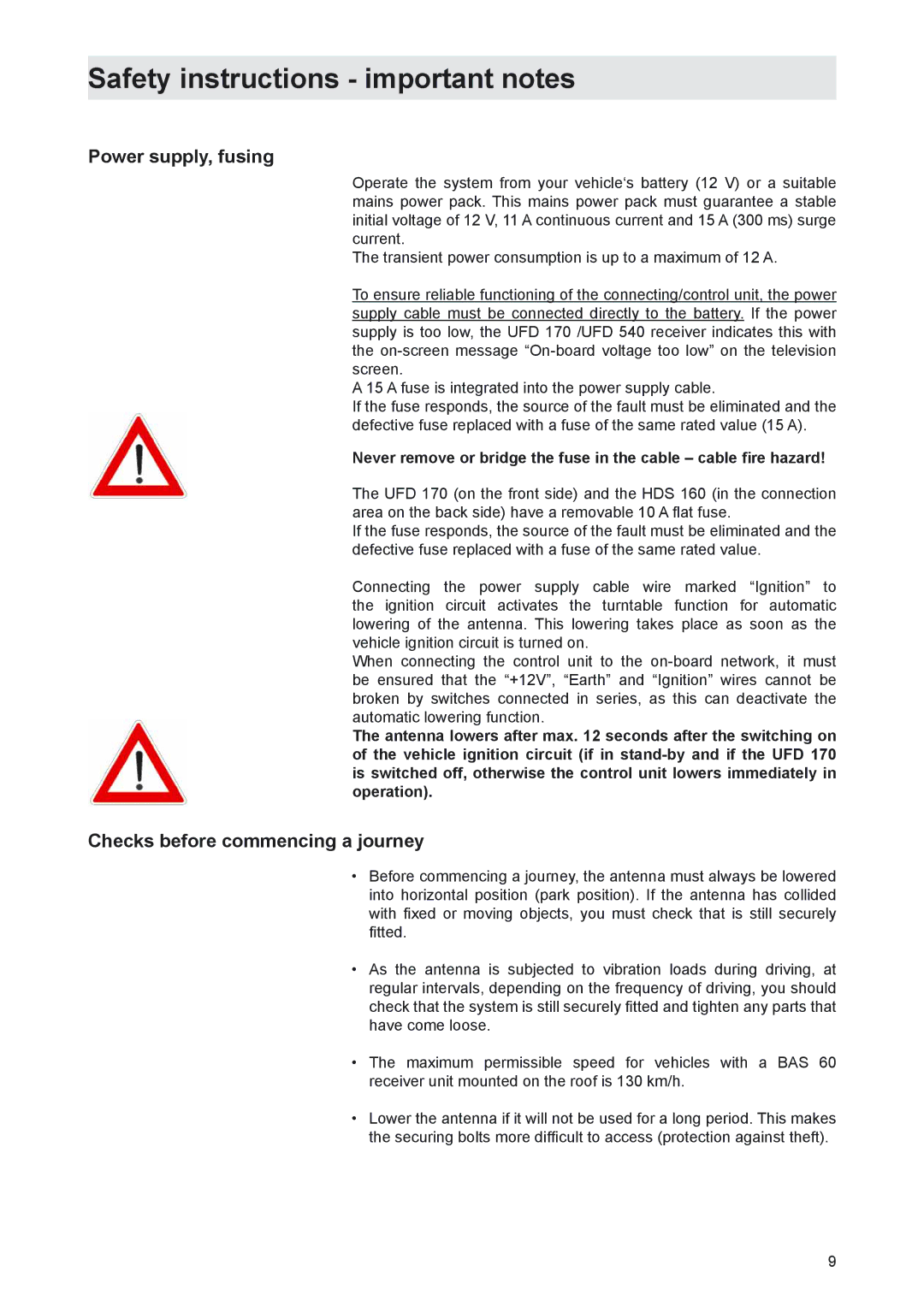
Safety instructions - important notes
Power supply, fusing
Operate the system from your vehicle‘s battery (12 V) or a suitable mains power pack. This mains power pack must guarantee a stable initial voltage of 12 V, 11 A continuous current and 15 A (300 ms) surge current.
The transient power consumption is up to a maximum of 12 A.
To ensure reliable functioning of the connecting/control unit, the power supply cable must be connected directly to the battery. If the power supply is too low, the UFD 170 /UFD 540 receiver indicates this with the
A 15 A fuse is integrated into the power supply cable.
If the fuse responds, the source of the fault must be eliminated and the defective fuse replaced with a fuse of the same rated value (15 A).
Never remove or bridge the fuse in the cable – cable fire hazard!
The UFD 170 (on the front side) and the HDS 160 (in the connection area on the back side) have a removable 10 A flat fuse.
If the fuse responds, the source of the fault must be eliminated and the defective fuse replaced with a fuse of the same rated value.
Connecting the power supply cable wire marked “Ignition” to the ignition circuit activates the turntable function for automatic lowering of the antenna. This lowering takes place as soon as the vehicle ignition circuit is turned on.
When connecting the control unit to the
The antenna lowers after max. 12 seconds after the switching on of the vehicle ignition circuit (if in
Checks before commencing a journey
•Before commencing a journey, the antenna must always be lowered into horizontal position (park position). If the antenna has collided with fixed or moving objects, you must check that is still securely fitted.
•As the antenna is subjected to vibration loads during driving, at regular intervals, depending on the frequency of driving, you should check that the system is still securely fitted and tighten any parts that have come loose.
•The maximum permissible speed for vehicles with a BAS 60 receiver unit mounted on the roof is 130 km/h.
•Lower the antenna if it will not be used for a long period. This makes the securing bolts more difficult to access (protection against theft).
9
